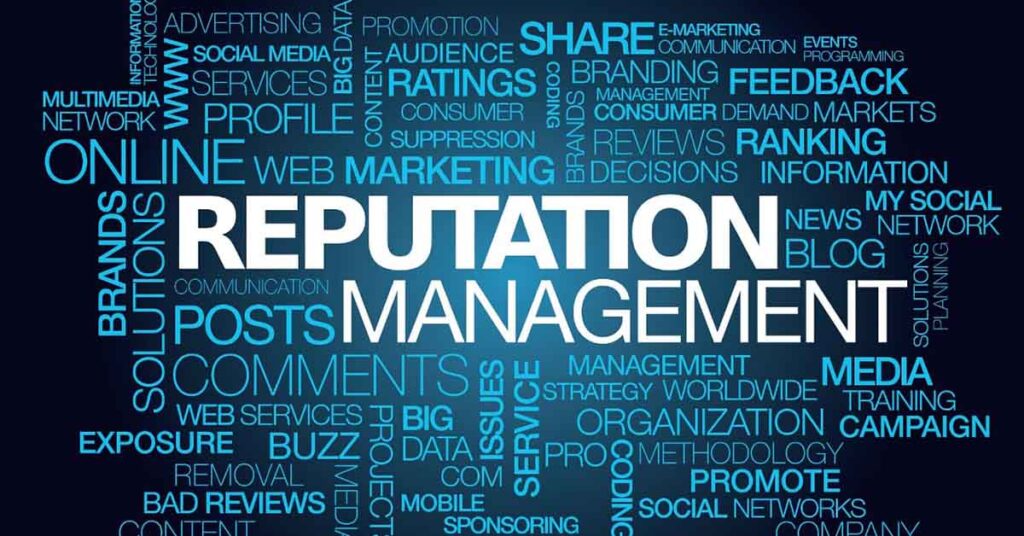Now that you’re aware of the consequences of poorly managed social media channels, on to the most important question – how to properly manage your reputation on social media?
- Determine your current online reputation
Knowing where you stand is the absolute first step in managing your reputation on social media.
How are your customers currently feeling about your brand? Are your social media gaining traction, or are you struggling with bad reviews and people criticizing you and your brand? Are there more positive feelings or negative ones? What are the satisfied customers talking about your brand?
Regardless of how scary it might feel, doing the research and knowing where your stand is crucial in order to know how to move forward.
While doing this research, you should check:
- all social media posts together with the comments below them and also the @mentions of your brand (and don’t forget your competitors too)
- online reviews from third-party review sites such as G2 and Capterra; and
- feedback manually gathered from your customers, such as surveys and contact forms placed on your website
Once you’re done gathering data, the next step is analyzing it and determining the ratio of positive vs. negative comments/reviews.
- Have a social listening strategy in place
Once you’re done with the initial assessment – it’s fair to say that the work doesn’t stop there.
To fix a certain brand’s social media reputation – you will have to monitor and manage the social media channels’ presence continuously and constantly. The best way to do so is to have a social listening strategy.
A Social listening strategy will help you get to know your audience better, stay ahead of your competitors and the industry you’re in, and will help you improve your customer’s support and service.
FYI: If you want to learn more about it – here’s how to create a social listening strategy in 5 simple steps.
With a social listening tool, you will have to track tags, brand mentions, hashtags, and branded keywords (for both you and your competitors).
- Take action and respond to those mentions
You know your reputation, + you’ve set up a system to keep track of new mentions, so the last thing remaining is to take action and respond properly to all mentions (both positive and negative).
Here are some tips when it comes to responding to your (potential) customers:
- personalize the message instead of adding a generic comment – every person wants to interact with a real human being
- always thank your customers for reaching out
- maintain a level of professionalism when responding to messages + when creating and posting new content
- don’t be too defensive when responding to comments; try and be direct and transparent yet always respectful about that particular issue
- be apologetic even if you might not be “guilty” of anything
- provide your customers with ways to reach out to you (e-mail, live chat, or phone number)
- always update your customers about the issue they face – keep them in the loop
- don’t forget to respond to the positive comments and all sorts of mentions, too – this will help you build an “image” for your brand that you are responsive, and this will help you humanize your brand
- don’t delete negative reviews nor ignore them – instead, acknowledge the specific issue your customers are facing, show them you understand them, and try actually to resolve their problem.
Extra tip: Create a positive “buzz” around your brand.
One of the best ways to “fight” negative reviews and comments is by encouraging an avalanche of positive praise.
How can you do this?
There are versatile ways to do so, and some of them include publishing:
- success stories of how your brand (service/product) helped a customer (user-generated content – you could even pull these quotes from your social media and post them on your website as social proof with a tool such as EmbedSocial)
- existing positive reviews from happy customers
- posts from employees regarding their workplace/colleagues (employee-generated content )
List of things that can damage your social media reputation
There are a number of things that can damage your social media reputation, both as a business and individual, including:
- Writing profanity or making offensive statements about other users
- Being argumentative or combative with others
- Spreading false information or rumors
- Posting too much personal information
- Posting unprofessional photos or videos
- Failing to respond to negative comments or reviews
- Posting pictures that are derogatory or sexual in nature
- Sharing confidential information or trade secrets
- Impersonating another user
- Sabotaging other companies’ reputations by deliberately posting false information



